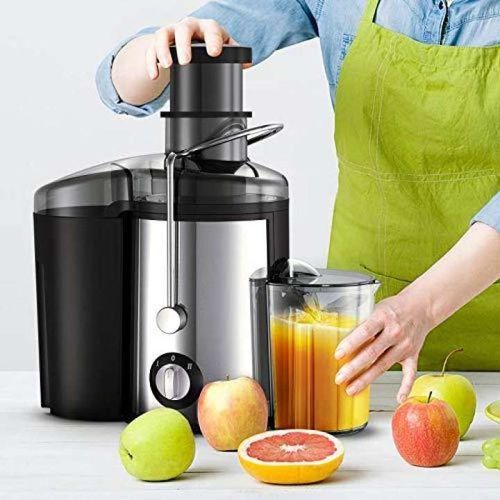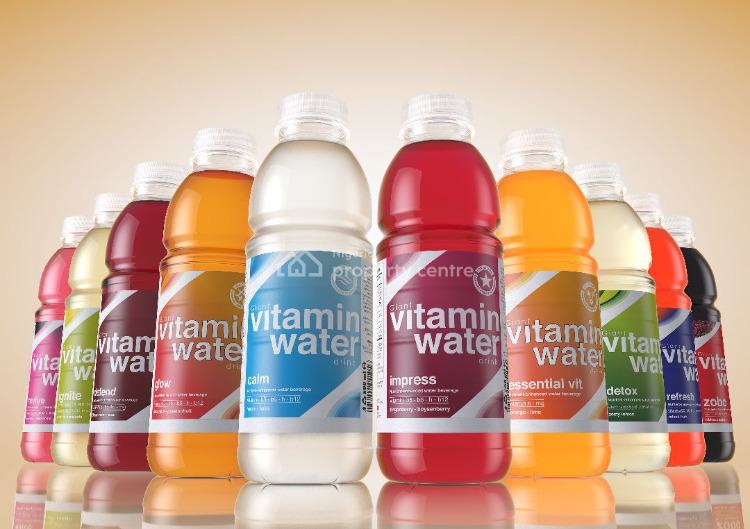Imagine walking into your kitchen, blending up a refreshing glass of natural fruit juice, and realizing that what you just made could turn into a thriving business. That’s the kind of opportunity the Fruit Juice Production Business in Nigeria offers, especially in a country where fresh fruits are abundant and the demand for healthy drinks is steadily rising.
More and more people are moving away from sugar-packed sodas and processed beverages, looking for healthier alternatives. Natural fruit juice is quickly becoming the go-to option for health-conscious Nigerians, making this a golden time to tap into this booming industry.
The best part? You don’t need millions of naira to get started. With some creativity, the right strategy, and a willingness to start small, you can build a profitable fruit juice business from your home or a small rented space. This guide is designed specifically for beginners who want to enter this space with minimal investment.
Whether you’re a student, stay-at-home parent, or someone looking for a side hustle, you’ll find everything you need here, from the juice-making process to branding, marketing, and scaling up.
What Is Fruit Juice?
Fruit juice is the natural liquid that’s extracted from fresh fruits. It’s packed with essential nutrients like vitamins, minerals, and antioxidants. Unlike sugary or carbonated drinks, natural juice offers real health benefits, helping boost your immune system, hydrate your body, and provide a tasty, natural energy source.

Benefits of the Fruit Juice Production Business
1. Abundance of Local Fruits
Nigeria is blessed with a wide range of fruits like oranges, pineapples, mangoes, and guavas. These fruits are available in most regions, especially during their seasons. This reduces your sourcing costs significantly and helps you maintain a steady supply of raw materials.
2. High Nutritional Value
As more Nigerians become aware of lifestyle-related diseases like diabetes and obesity, there’s a growing preference for natural drinks. Fruit juice fits perfectly into this healthy living trend.
3. Growing Demand and Diversification
The market is wide open. You can start with one type of juice and later diversify into smoothies, detox drinks, and fruit blends. The options are limitless.
4. Job Creation and Income Generation
Not only can you earn a good income, but you can also create job opportunities for others as your business grows, whether it’s in sourcing, production, or delivery.
5. Innovation and Export Potential
With creativity, you can create unique recipes, attractive packaging, and even tap into export markets in the future.
6. Supporting Local Farmers
By buying fruits locally, you’re supporting local agriculture and reducing food wastage, especially with fruits that would otherwise rot during harvest seasons.
Related Posts:
- 35 Low-cost Offline Business Ideas in Nigeria 2025
- How to Start Cloth Branding Business
- How to Start a Soap-making Business
- 8 Best Offline Business Ideas for Retirees in Nigeria
Steps on How to Start a Fruit Juice Production Business in Nigeria
Here are the steps involved in the fruit juice production business. Understanding and adhering to these steps will lead you to success in your business journey. They are as follows:
Step 1. Understanding the Fruit Juice Production Process
At its core, fruit juice contains water (from the fruit), natural sugars, vitamins (like Vitamin C), minerals (like potassium), and plant compounds like antioxidants.
1. Step-by-Step Production Process includes:
Fruit Sorting, Washing, and Peeling. Always start with clean, ripe fruits. Sort out any spoiled ones, then wash thoroughly. Some fruits may need peeling, like oranges or pineapples, while others, like apples, can be juiced whole (after removing seeds).
2. Juice Extraction Methods
A. Manual Extraction: Using hand squeezers or local pressers. Suitable for very small batches.
B. Machine-Based Extraction: Using juicers or blenders. Affordable electric juicers are available and efficient for small businesses.
3. Pasteurization (Optional)
To increase shelf life, especially if you’re not selling immediately, gently heat the juice to kill bacteria. But if you’re serving fresh and natural without preservatives, this step can be skipped.
4. Going Natural
Many customers prefer juice without additives or preservatives. Focus on freshness and clear labeling to attract health-conscious buyers.
Step 2. Low-Cost Business Strategy: How to Keep Investment Minimal
You don’t need a factory to begin. Start from home or a shared space, producing a limited quantity to test the market.
1. Rent or Share Equipment
Avoid big expenses by renting juicers or using shared kitchen spaces. You can even borrow from friends or family at first.
2. Use Basic Tools
A good blender, a manual citrus juicer, a sieve, and clean bottles are enough to get going.
3. DIY Marketing
Use free design tools like Canva to create simple logos and flyers. Promote your products on WhatsApp, Instagram, and Facebook for free.
4. Word-of-Mouth Marketing
Let friends, family, and neighbors try your juice and help spread the word. Attend local events or partner with community shops to showcase your product.
Step 3. Creating a Simple and Effective Business Plan
A business plan gives you a clear direction. It doesn’t need to be fancy, outline your goals, who your target customers are, how much you plan to produce, and how you plan to grow.
1. Identify Your Niche: Will you focus on school children, gym-goers, office workers, or health stores? Pick a target market that aligns with your vision and available resources.
2. Do Your Research: Check what types of juices people buy in your area, how much they pay, and what packaging they prefer. This helps you position your brand properly.
3. Selecting the Right Location: You can do this in two ways:
A. Home-Based Production: Your kitchen can be your first factory. Just ensure hygiene and cleanliness. This setup saves rent and gives you room to test your business idea.
B. Low-Cost Commercial Spaces: When you grow, consider a small shop or shared kitchen. Look for places where you can both produce and sell your juice.
4. Be Close to Suppliers: Staying near markets or farms where fruits are sold in bulk reduces transportation costs and spoilage.

Step 4. Legal and Regulatory Considerations by Registering your Business ( it’s Optional for Beginners)
1. Why Registering Your Business with CAC Matters: Although not required at the start, registering your business with the Corporate Affairs Commission (CAC) adds credibility. It also makes it easier to access loans and funding as your business expands.
2. When and How to Register Your Fruit Juice Brand: As your juice business grows, registering with CAC becomes important for protecting your brand name and intellectual property. It also positions you for future growth and business opportunities.
3. Licenses and Certifications: In Nigeria, you’ll need approval from NAFDAC before selling widely. For small-scale/home-based businesses, start small and register your business when you’re ready to scale.
A. Low-Cost Licensing: Start with local authority approvals. Later, when your business grows, you can process the full NAFDAC registration.
B. Know the Rules: Follow local hygiene and food safety guidelines. Wear gloves, clean utensils, and store your juice properly to avoid problems with health inspectors.
Step 5. Sourcing Raw Materials on a Budget
1. Work with Local Farmers: Build relationships with farmers. Buying directly from them cuts out middlemen and gives you fresh fruits at lower prices.
2. Use Seasonal Fruits: Fruits are cheaper and more abundant in their seasons. Plan your juice offerings around what’s in season.
3. Choose Fruits That Last: Fruits like oranges, pineapples, and apples don’t spoil as quickly and are easier to manage in small-scale production.
Step 6. Choosing the Right Equipment Without Breaking the Bank
1. Start with the Basics: Begin with manual juicers, small blenders, or hand-press machines. No need to buy expensive industrial machines.
2. Upgrade Gradually: As your sales increase, reinvest your profits into buying better and faster equipment.
3. Consider Used Equipment: Look for second-hand juicers or refurbished equipment in good condition; they’re usually much cheaper than new ones.

Step 7. Pricing Your Products for Maximum Profit
1. Know Your Costs: Calculate the cost of fruit, bottles, packaging, labor, and transportation. This helps you price your juice correctly.
2. Check Competitor Prices: See how much others are charging. Stay competitive without underpricing yourself.
3. Add Profit: Include a fair profit margin, ideally between 50% and 60%. As you grow, you can introduce premium options too.
4. Offer Variety: Different bottle sizes (250ml, 500ml, 1L) give customers more choices and can boost sales. You can also offer weekly subscription discounts for regular buyers.
Step 8. Packaging and Branding: Keeping Costs Low
1. Use Affordable Yet Attractive packaging: Packages such as Glass Bottles or Eco-Friendly Pouches
Packaging is a key aspect of your branding and customer experience. While it’s tempting to go for fancy packaging, it’s important to keep it affordable, especially when starting.
Glass bottles are a great option as they are reusable and give the product a premium feel. You can also use eco-friendly pouches, which are lightweight, cost-effective, and have become increasingly popular with environmentally conscious consumers.
Remember, the packaging doesn’t have to be expensive to be attractive. Focus on clear, simple designs that showcase the natural ingredients and health benefits of your juice.
2. DIY Branding: Use Low-Cost Design Tools and Local Printing Shops for Your Labels and Branding Materials
When it comes to branding, you don’t need to hire a high-end designer. You can also print your labels at a local printing shop, which can be more affordable than working with an international printer.
Your labels should highlight the key benefits of your juice, whether it’s 100% natural, rich in vitamin C, or made with local ingredients. Clear and informative labeling will help your product stand out to health-conscious consumers.
3. Use Clear Labels That Highlight Health Benefits and Natural Ingredients:
Customers love healthy, natural products, so your label should show that. List ingredients, nutritional info, and any standout features like “no preservatives” or “no artificial sweeteners.” If you use locally sourced fruits, mention it; it helps build trust and supports local pride.

Step 9. Budget-Friendly Marketing for Your Fruit Juice Business
1. Promote on Social Media: Use Instagram, Facebook, and TikTok to show off your juice with eye-catching photos and videos. Highlight fresh ingredients and health benefits. Run giveaways, ask for feedback, and share customer reviews to build engagement and loyalty, all for free.
2. Partner with Local Businesses: Collaborate with gyms, health centers, or cafés that share your values. Offer them free samples or a sales commission. This helps you tap into their customer base and boost your brand visibility.
3. Join Local Events: Attend community events and fairs to give out samples and promote your juice. It’s a low-cost way to gain exposure and connect with new customers face-to-face.
Step 10. Affordable Distribution Strategies
1. Direct Sales: Start small with door-to-door delivery or local pickup to save on logistics. You’ll keep more profit and build a close relationship with early customers.
2. Online Orders: Set up a simple website or take orders via Instagram or WhatsApp. Many Nigerians shop online now, so an online presence can help you grow beyond your area.
3. Sell Through Local Shops: Reach out to health stores, gyms, and restaurants to stock your juices. Offer consignment or wholesale deals to get started with minimal risk.
Step 11. Growing Your Business Step-by-Step
1. Reinvest in the Business: Put your profits back into upgrading equipment, improving marketing, or expanding production. Grow gradually, don’t scale too fast.
2. Add New Products: Introduce new juice flavors or add smoothies, shakes, or fruit snacks to attract more customers and increase repeat sales.
Step 12. Managing Finances and Staying Profitable
1. Track Your Expenses: Keep a close eye on spending, know exactly where your money goes, so you can cut unnecessary costs.
2. Monitor Cash Flow: Use spreadsheets or simple software to track income and expenses. This helps you stay on top of your finances and plan.
3. Grow Without Debt: Use profits to expand rather than borrowing. This keeps your business financially healthy and sustainable.
Challenges of the Fruit Juice Production Business
1. Inadequate Infrastructure and High Production Costs
One of the biggest challenges in Nigeria is the lack of infrastructure, which can lead to higher production costs. For example, the inconsistent power supply can make it difficult to store ingredients or keep equipment running. However, finding cost-effective ways to work around these issues is key.
2. Limited Access to Finance and Inconsistent Raw Material Supply
Access to finance is another challenge for small businesses. Many banks are hesitant to lend to startups, and raw material prices can fluctuate due to seasonal changes.
3. Challenges in Sourcing Equipment, High Competition, and Limited Market Access
Securing equipment for your juice production can be costly, and there’s also competition from other producers. To overcome these challenges, consider starting with small, affordable equipment and scaling up as your profits grow.
4. Quality Control Issues, Health and Safety Regulations, and Inadequate Marketing
Maintaining high-quality standards while adhering to health and safety regulations can be challenging, especially when starting on a small budget. However, staying informed about local regulations and investing in good hygiene practices will help you avoid issues.
5. Poor Distribution Networks, Lack of Innovation, and Limited Access to Information and Technology
A strong distribution network is essential to growing your business. If you struggle with reaching your customers, consider online ordering or partnerships with local stores.
6. High Levels of Bureaucracy, Seasonal Production, Dependence on Imported Machinery, and Limited Access to Skilled Labor
Like many businesses in Nigeria, navigating the bureaucracy involved in registering your business and ensuring compliance with regulations can be time-consuming. Additionally, depending on seasonal fruits can create supply issues, but planning and diversifying your fruit sources can mitigate this risk.

Frequently Asked Questions and Answers
1. Do I need a large capital to start a fruit juice business?
No, you can start small with home-based production and basic equipment like manual juicers. As demand grows, you can reinvest profits to scale gradually.
2. Where can I source affordable raw materials?
Source fruits from local farmers or markets. Focus on seasonal fruits to reduce costs and build strong relationships with suppliers for consistent, affordable sourcing.
3. How can I market my juice business on a small budget?
Use social media (Instagram, Facebook, TikTok) to showcase your juices and engage with customers. Partner with local businesses and attend community events for free promotion.
4. What challenges might I face starting a juice business in Nigeria?
Challenges include inconsistent power supply, fluctuating fruit prices, and navigating local regulations. Start small, focus on local sourcing, and scale as you grow to manage these challenges effectively.
Conclusion
Starting a fruit juice business in Nigeria with low investment is absolutely possible with the right approach. While there are challenges, the potential rewards are high, especially in an environment that values natural, healthy products. By starting small, focusing on quality, and being resourceful with your spending, you can build a strong foundation for long-term success.
Take your time to understand the market, engage with your community, and gradually expand your product offerings as you grow. With determination, hard work, and a focus on quality, your juice business can thrive in the growing Nigerian market. So, what are you waiting for? Start turning those fresh fruits into a profitable business today!
If you found this guide helpful, please consider supporting us by subscribing to our newsletter, liking it, and sharing it with others.


